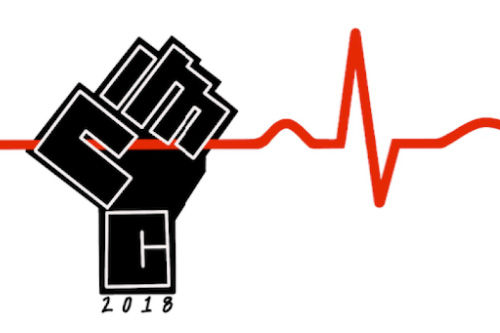
Earlier this semester, Drexel University College of Medicine hosted the 4th annual Racism in Medicine Conference (RiMC). Three College of Medicine students, Dominique Jones, Urooj Khalid and Lilien Socorro, served as the executive planning coordinators, overseeing all planning operations of the conference.
"As a student-driven event, RiMC was an opportunity to highlight the stories and goals that we feel are crucial to the social justice movement," explains Khalid, a second-year medical student. "Too often discussions of race and racism are conducted in spaces that are created by the more privileged and by those of large institutions, and it is these individuals who assume control of the narrative."
"By ensuring all those involved in planning this conference were students, we hoped to take our education regarding race in medicine into our own hands," Khalid says. "We wanted to take control of the narrative to elevate those who could add valuable perspective to the conversation of race in medicine."
The conference included three keynote speakers and 14 breakout sessions. The keynote speeches were delivered by Dr. Loren Robinson, deputy secretary for health promotion and disease prevention for the Commonwealth of Pennsylvania; Dr. Sherrelle Barber, assistant research professor in epidemiology and biostatistics and the Urban Health Collaborative at Drexel University Dornsife School of Public Health; and Dorothy Roberts, acclaimed scholar of race, gender and the law. View speaker topics.
Jones, a second-year medical student, explains why the conference is necessary and vital. "Throughout history, medicine has been used as a tool to perpetuate racism, discrimination and oppression on marginalized communities. With this conference, we hope to change the status quo. By addressing both large and small acts of injustice, we encourage students to think critically of common medical practices and how they may be adding to health disparities in the country," she says.
The event was not only informative, it provided attendees with the tools necessary to identify and combat acts of racism and discrimination within their lives.
"Without a doubt, the biggest takeaway from the day was the idea that we must not only recognize microaggressions, discrimination and racism, but we must also take action," says Khalid. "The conference emphasized our ability, even as students, to be able to bring change and amplify the voices of those who are overshadowed by the more privileged."
Jones agrees, saying, "Many times, we think, 'What can we do as just a student?' We can continue these conversations. We can take a stand against harmful traditions of an unequal health care system. And we can push ourselves, and each other, to never stop fighting."